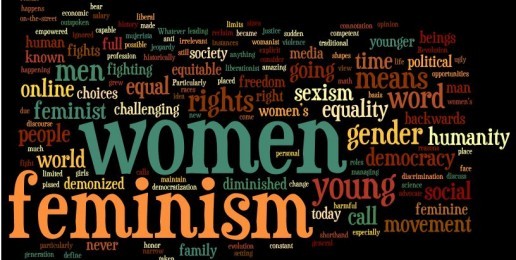
Preserving Traditional Marriage is a Feminist Issue
07.05.13
Reading Time: 3 minutes
Written by Dr. Diane Medved
I can’t decide if it’s retro or radical but traditional marriage is a feminist issue.
It seems crazy or somehow reversed and certainly politically incorrect, but allowing women to be feminine in the traditional sense is true feminism–liberating, not confining, restricting or unenlightened. Too bad it’s become gauche to point out that the two sexes are vastly, fundamentally opposite—and that each has a set of hard-wired characteristics that despite insistence to the contrary, can’t be compromised.
This refutation of the value of femininity is most evident with the growing acceptance of—or resignation to—gay marriage.
Defining marriage as any two people, male, female or what-have-you denies real and intrinsic gender differences. Differences that are honorable. That are honest.
Differences that generations for thousands of years acknowledged and accommodated and elevated, but that we super-progressive geniuses now denigrate and negate.
How can anyone miss that physiologically, emotionally, mentally and behaviorally, men and women are different, not interchangeable? A raft of books explain clearly-identifiable characteristics of male versus female brains, and their indisputable manifestations. (A few on my shelf: Taking Sex Differences Seriously by Rhoads; The Female Brain by Brizendine; Same Difference by Barnett and Rivers; Sex on the Brain by Blum; Brain Sex by Moir and Jessel; Brain Gender by Hines…) Women’s innate desire to nurture children is no less powerful and important than men’s innate inclination to compete in the marketplace. Both are laudable, both are necessary, and together, both bring complementary wholeness.
Our culture is crazy to insist that women adopt the traditional male definition of success—which means success in career; success via competition, where the winner gets to be the leader.
Success in traditionally feminine realms requiring cooperation, problem-solving and nurturing in less financially-oriented settings (like home, school, community) deserves to regain the same prestige, praise and worth as the male standard that now supersedes them.
Are we talking about stereotypes of women’s “nature” that early feminists eschewed? Yes, but we are way beyond thirty years ago when women were limited by and to those stereotypes. Women earn significantly more college degrees at all levels than men do. Just under half of all medical and law students are female. Opportunities are open–except that work in traditionally feminine fields (“helping professions”) still offers lower status and remuneration than jobs that are overwhelmingly performed by men.
Sheryl Sandberg has done women a disservice. “Leaning in” should not mean pushing into business leadership with your shoulder ramming any obstacles in your path. Most women prefer “leaning in,” toward nuclear and extended families, friends and communities (though in the current climate they can’t admit it). Proving one’s competence now requires some nod to higher education and work experience. Forty percent of births are to unmarried mothers, most of whom must work to support themselves and their children. What percentage of these moms would rather stay home with their children if money were no concern? A recent Forbes poll found 84 percent of working women would opt out of their jobs if they could.
Even Ms. Sandberg acknowledges her own pining to care for her two youngsters, and notes that working women do twice the housework and three times the childcare of their husbands. Is that really because women just don’t demand enough of their spouses—or is it because women prefer control of their home domains, while their men do not? When marriage was a partnership that joined two very different genders in a way that split roles for maximum efficiency as well as maximum respect for natural inclinations, women were more highly honored. Now, women are told they’re victims because they hold fewer leadership roles in business. Now, women who don’t want to excel professionally because they prefer raising their children have to apologize for their “lack of accomplishment.”
When marriage becomes only a declaration of love and intention between any two people, masculine and feminine attributes lose respect. Everyone’s blurred. Mushed together into a unisex, meaningless glob without note of the very basis of human kind—the joining of male and female capabilities and desires to create new human life and an effective combination of opposites–called a family.
Celebrating women as distinct and inherently valuable is a feminist issue. Subjugating femininity in favor of a male standard is an issue for feminists to fight.
Originally posted HERE.





























